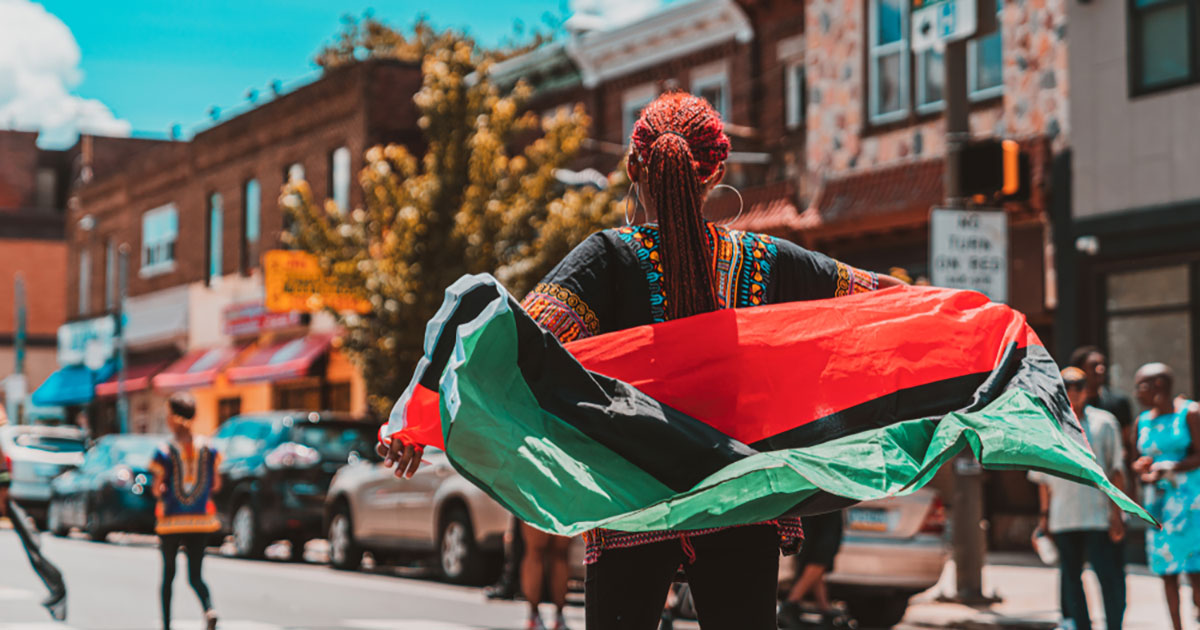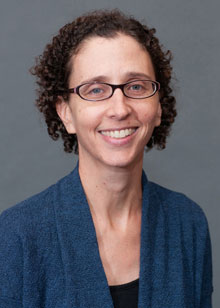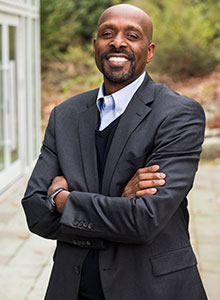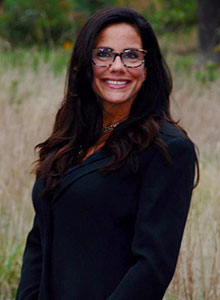The Tulsa Race Massacre, Juneteenth, Stonewall: Rethinking and Restoring History

From the lens of diversity, equity, and inclusion, the month of June is filled with moments of reflection and remembrance. Over the past year, following the murder of George Floyd and the ensuing social justice movement, commemorating these events has become more prevalent and meaningful.
The Tulsa Race Massacre marked its 100th anniversary May 31 and June 1. The 156th anniversary of the end of slavery in America will be celebrated on June 19, also known as Juneteenth. And, 52 years ago on June 28, the Stonewall uprising jump-started the modern movement for LGBTQ+ rights.
Join Babson College’s celebration of Juneteenth on June 18.
Each passing year requires everyone to rethink how we recall, study, and teach these historical events, some of which have never appeared in textbooks, and the progression that has come along with them.
We asked a group of Babson College faculty members who are historical, human rights, and social justice experts to weigh in on the necessary action as these critical historical events are increasingly incorporated into curriculum at all levels.
Why is it important at this point in time to rethink how we teach and analyze history?
Professor Marjorie Feld, an expert in United States history and society: “Historical writing often reflects and reinforces unequal social and economic arrangements. Liberation movements force us to rethink how we learn about the past—and only by listening to all historical actors have we been able to rethink arrangements that disempower marginalized groups.”
Professor Fred Opie, an expert in food traditions and social movements: “History that is taught in public schools, private schools, and universities has been a history that is European-centric and focused on white males. It leaves out of the discussion women and people of color. It’s not an accurate account of our history, in which so many people have contributed to the great country we have today.”
Professor Elizabeth Swanson, an expert in literature and human rights, and African American studies: “The United States suffers from a gap of understanding between our dominant racial progress narrative and what poet Amiri Baraka called ‘the changing same’ of dehumanization, oppression, and violence against Black citizens. I have witnessed this gap in my classroom: White students often express a sense of anger and loss at what had been left out of the history they learned in the earlier grades. We collectively witnessed the gap when George Floyd was murdered: a gasp of horror and the question of ‘how could this happen?’ The truth is it has been happening and sanctioned all along. We need to rethink how we teach history because it is the foundation upon which we build a shared historical narrative that leads to a sense of shared humanity necessary for dismantling structural racism.”
How can we ensure a diverse abundance of events are represented in history?

Feld: “My own teaching has been deeply influenced by liberation movements: civil rights, the feminist movement, gay rights, indigenous, disability, and immigrant rights movements, and labor unions, to name a few. I always teach striving for intersectionality, so that no one identity group has its voices unheard in my class. I also try to leave no stone unturned in my search for diverse sources. If educators look carefully, they can find sources that lend themselves to making any discipline and topic focus on historically underrepresented groups.”
How can we reincorporate events such as the Stonewall riots, Juneteenth, and the Tulsa race massacre into our history teachings?
Opie: “I got my PhD in 2000. The Tulsa race massacre wasn’t included in any of my courses. Graduating, I was trying to decide, ‘What do you want to do with your gifted ability?’ If I wasn’t learning about the Tulsa race massacre, it’s because there weren’t people who looked like me doing the research and the writing. That’s why I decided to become a historian and dedicate my career to that.

“We’re talking about the massacre of large numbers of African American entrepreneurs. This should be an important part integrated into entrepreneurship education. You had to be twice as good as an entrepreneur in a society in which mainstream banks wouldn’t provide you capital and folks were dead set against your progress. These people were so successful as business folks, they gained the name Black Wall Street.”
Swanson: “Our racial history, starting with our engagement with indigenous people, is a history of atrocity, and until we acknowledge and address that foundation, we will not find peace. Teaching history through the arts and literature is a powerful way to engage not only the intellect of the learner but also the heart and the guts, ensuring they have the fire to become part of the justice revolution underway.”
How can society heal after learning about these aforementioned events that many may not have been previously exposed to?
Opie: “The idea that in the Tulsa race massacre, people’s property was destroyed, people’s land was taken over, with no compensation … wealth building begins with land ownership. These people’s homes were burned to the ground with state complicity in the process. You can’t just have this whole idea of forgiveness; you have to have restoration.”
Join us for Babson College’s celebration of Juneteenth.

Swanson: “If we take our lessons from other examples, such as the South African Truth and Reconciliation Commission, then before talk of reconciliation, we must focus upon correcting the material conditions of people’s lives by dismantling the racist systems upon which our society is built. Start by rezoning our country, neighborhood by neighborhood, to build equity and inclusion and adequate standards of living. Close the outrageous wealth gap between Black and white citizens. End the disparities in health care that in a city like Boston mean a gap of 30 years life expectancy when one moves neighborhoods from Back Bay (92 years) to Roxbury just a few miles away (59 years). In undertaking these urgent actions, we will build the just society that can lead to reconciliation.”
What other examples of historical events or movements are missing from a traditional curriculum and need to be taught and studied?
Feld: “Experiential learning is important, and two years ago when I taught my elective away, CrossRoads Manhattan, we discussed the attempted extermination of the island’s indigenous people, the treatment of immigrants, and the use of enslaved people as a buffer for the safety of colonial troops. It is essential that we focus not only on oppression and injustice but (also) on the movements that people built to free themselves from oppression and injustice.”
Opie: “The contributions of women, Black and brown people, working-class people, that’s typically been left out of history. There’s not a population that has a monopoly on taking from our society or contributing.”




